Prime Minister alienated from the reality British people are living
It's very rare that a former leader publicly criticizes or provides advice to his or her successor, and is often something that protocol frowns upon when it's done. However, this has not stopped the former Labour Chancellor and Prime Minister Gordon Brown from doing so Leaving Boris Johnson red faced in the process.
So intense has the criticism been that Gordon Brown has stated that Britain is becoming a failed state, not only through the poor mishandling of various crises by the British government, but also because of the ever widening and deepening divisions within the British sociopolitical system.
It seems that Brown has placed the blame squarely at the feet of Boris Johnson, suggesting that the Prime Minister is so alienated from the reality in which British people are living that he has lost scope of how the British feel on a variety of issues and everyday problems.
One of the main reasons for the disparity is the divide between the Conservative Party and the people, a division, that's traditionally seen different classes voting for different parties in the UK, with the working class commonly leaning towards labour and the upper middle class, swinging towards the Tories, hence, leading to a lack of communication between the ruling party and the majority of people in Britain.
One such example of just how divided the UK is as a nation is their opinion on Brexit, with such a slim divide between those wishing to leave the EU and those who wish to remain, the difference of opinion of people across the whole of the United Kingdom of Great Britain and the north of Ireland is already fractured without bringing the notion of nationalism and separatism into the equation.
So when the element of nationalism is introduced into the argument, for example, In the case of Scotland, is former Prime Minister Gordon Brown right when he says that the UK is on the verge of becoming a failed state, and if so, just how serious is the problem?
It's obvious that the present system isn't working. When you have one of the constituent nations, Scotland, and the other completely at odds with the capital, and the sort of the economic core of the country, then it's obviously, the system is not working, our political system was not going to, hasn't just to represent a numerical majority, it has to represent all sectors of society, and all regions of the country. And this current system is obviously failing to do so.
Ian Williams, Journalist and Political Analyst
Scottish independence
Back in 2014, the majority of Scots rejected the idea of having an independent Scotland for the country was benefiting from EU budgets allocated to its agriculture, economy, and education sectors.
However, now that Britain has left the EU, Scots see themselves empty handed and are seriously considering rejoining the EU.
Scottish First Minister, Nicola Sturgeon, has repeatedly stated that she would push for a second referendum, if her party wins a majority in the May elections. Sturgeon has insisted on her country's political independence by stating that Westminster's consent to the move is not their priority; it’s for the people of Scotland to choose, and not the lawmakers in Westminster.
The latest poll shows that nearly half of the people in Scotland are now in favour of an independent country, a figure that's likely to increase even more as Scots see fewer benefits flow into their country, and Scottish nationalism is significantly on the rise, hence, putting the Scottish people much closer to the option of voting for such a move.
The last referendum they had was under completely different circumstances. Britain was part of the European Union, Scotland, the Scots were very happy being European, and they liked it that way. When Britain left the European Union, they were left, how should we say, defenceless and without allies in the face of an overweening London capital. So, yeah, they're entitled to ask for it, whether they should get it or not, whether they should is another story once the time comes to vote for independence.
Ian Williams, Journalist and Political Analyst
Some of the problems that Britain is struggling with in its post Brexit era, and the widening political and social inequality, have encouraged other countries within the UK to consider leaving for they believe that they're better off on their own.
Current polls indicate that over half the people in the north of Ireland welcomed the idea of holding a referendum on a united Ireland.
Also in Wales, people are starting to back the idea of holding a referendum on independence, spelling the inevitable breakup of the United Kingdom in the process.
Can Boris Johnson's Conservative government reunite a divided Britain, or has the pendulum swung too far past the tipping point, taking Britain towards a collapsed failed state full of internal division?
Sharif University scholars condemn US foreign policy as illegal, destabilizing
Pezeshkian says Iran seeks no war, vows 'decisive' response to any attack
Iran ready for both war and dialogue, ‘will not accept dictation’: FM Araghchi
Trump warns UK against enhancing China ties as PM Starmer hails reset
VIDEO | Press TV's news headlines
Iran rejects threats, backs win-win diplomacy, Pezeshkian tells Erdogan
VIDEO | Disabled Iranian woman dies in German custody
VIDEO | Iranian students voice anger at French govt. for hostile policies


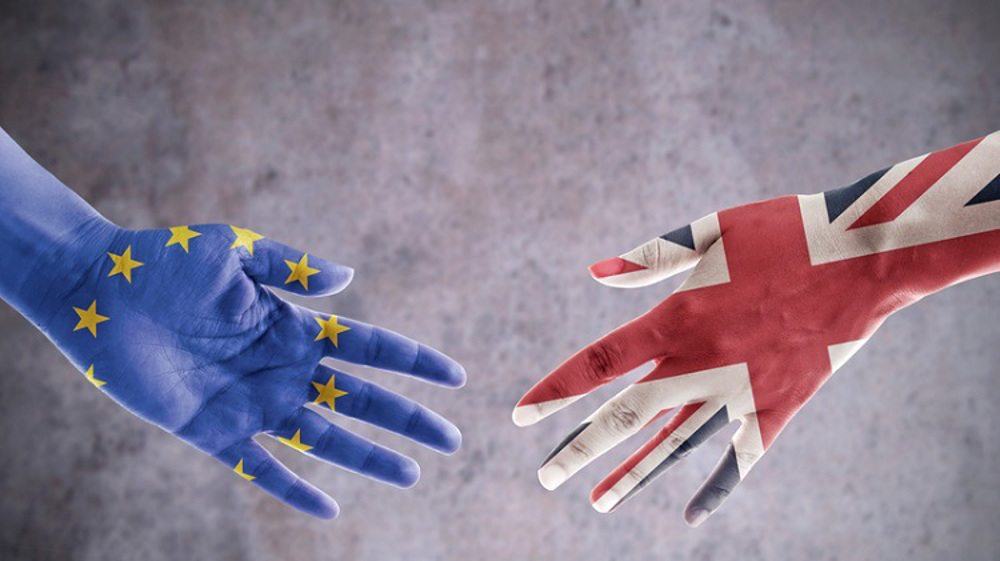















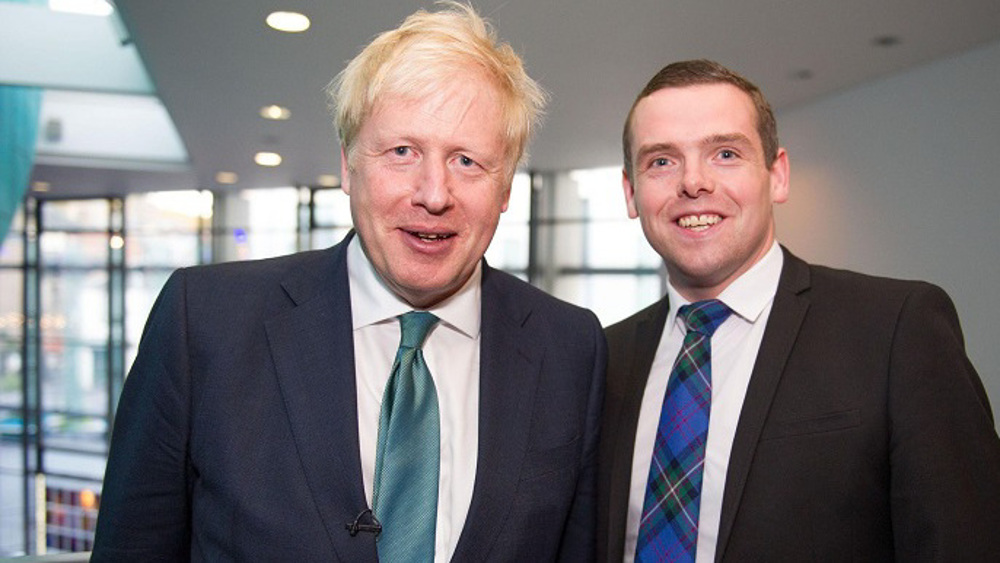
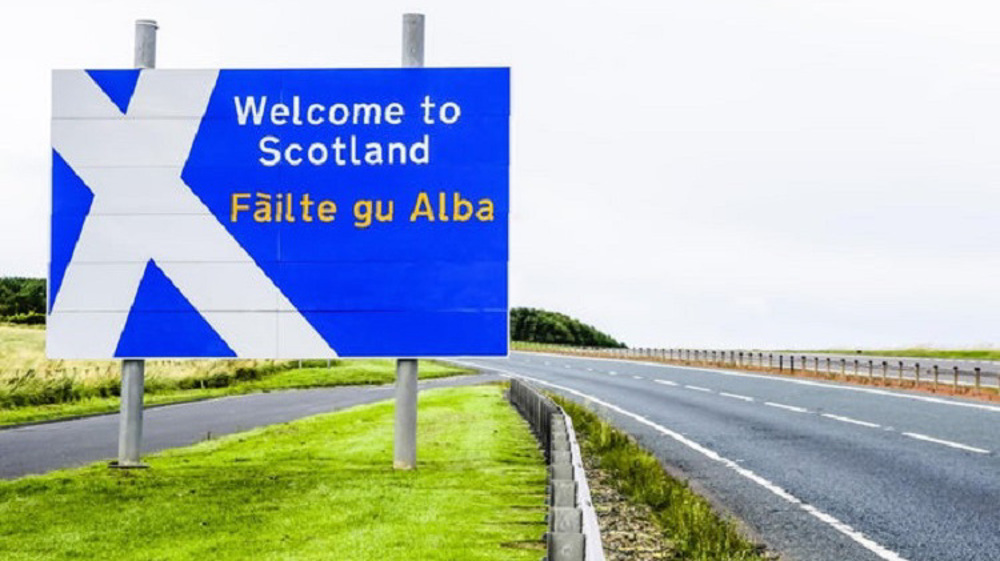
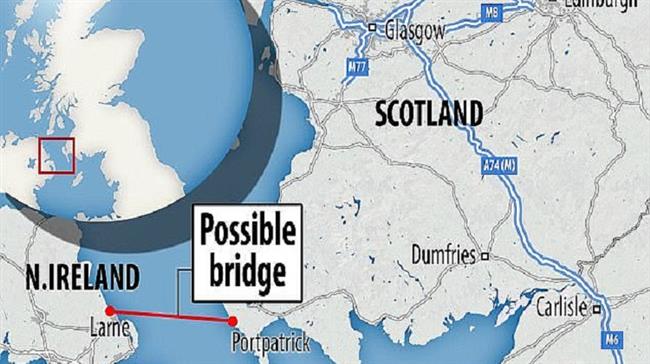


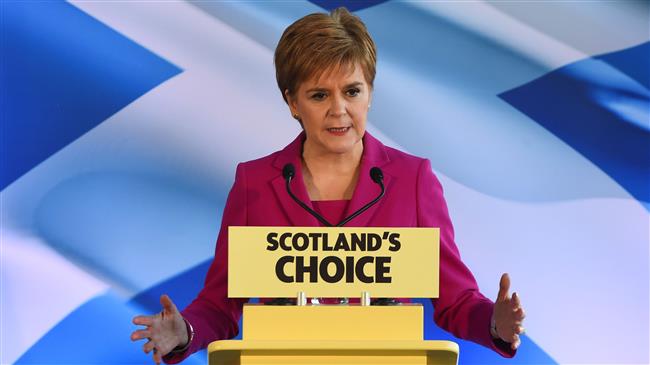

 This makes it easy to access the Press TV website
This makes it easy to access the Press TV website